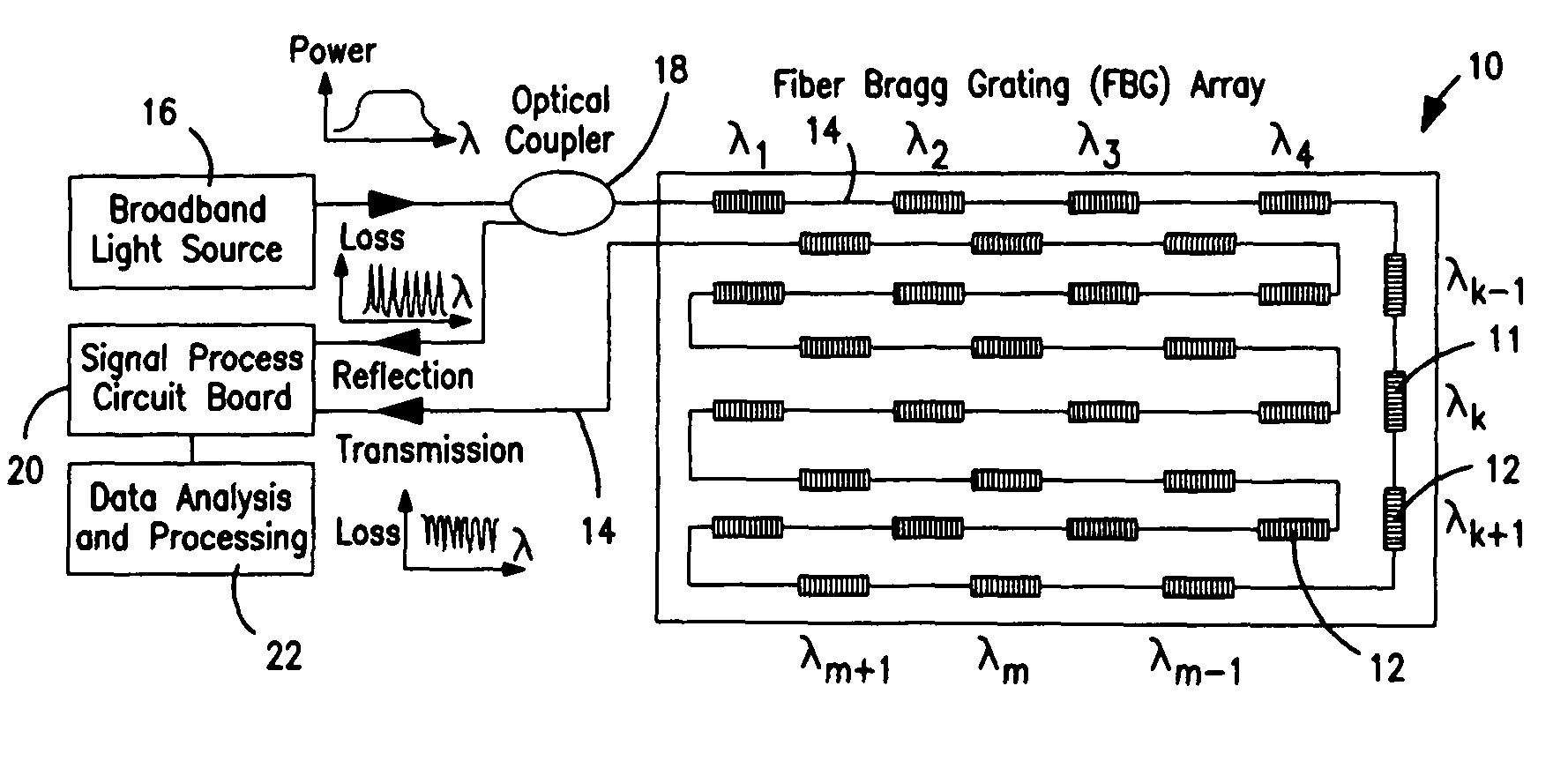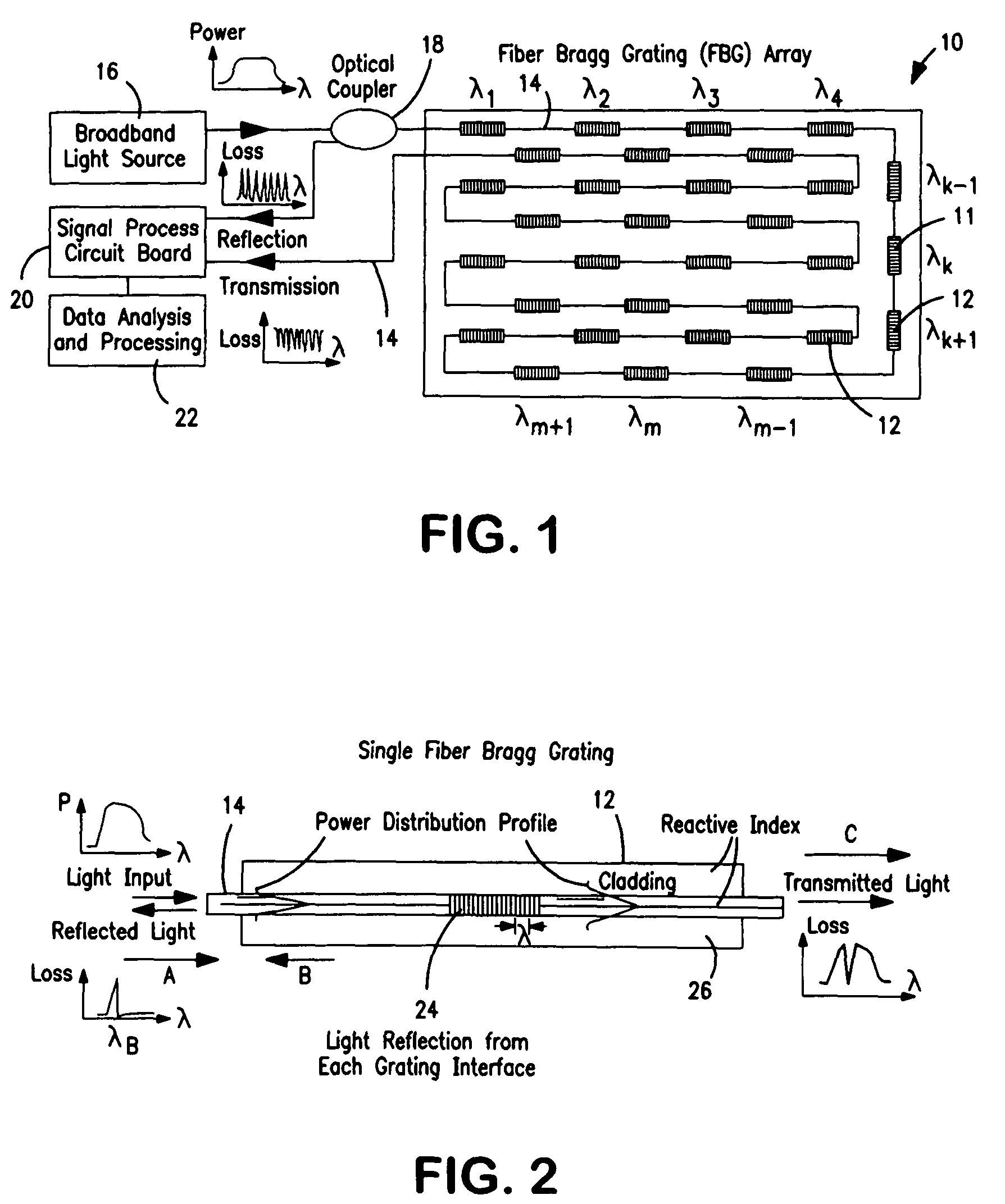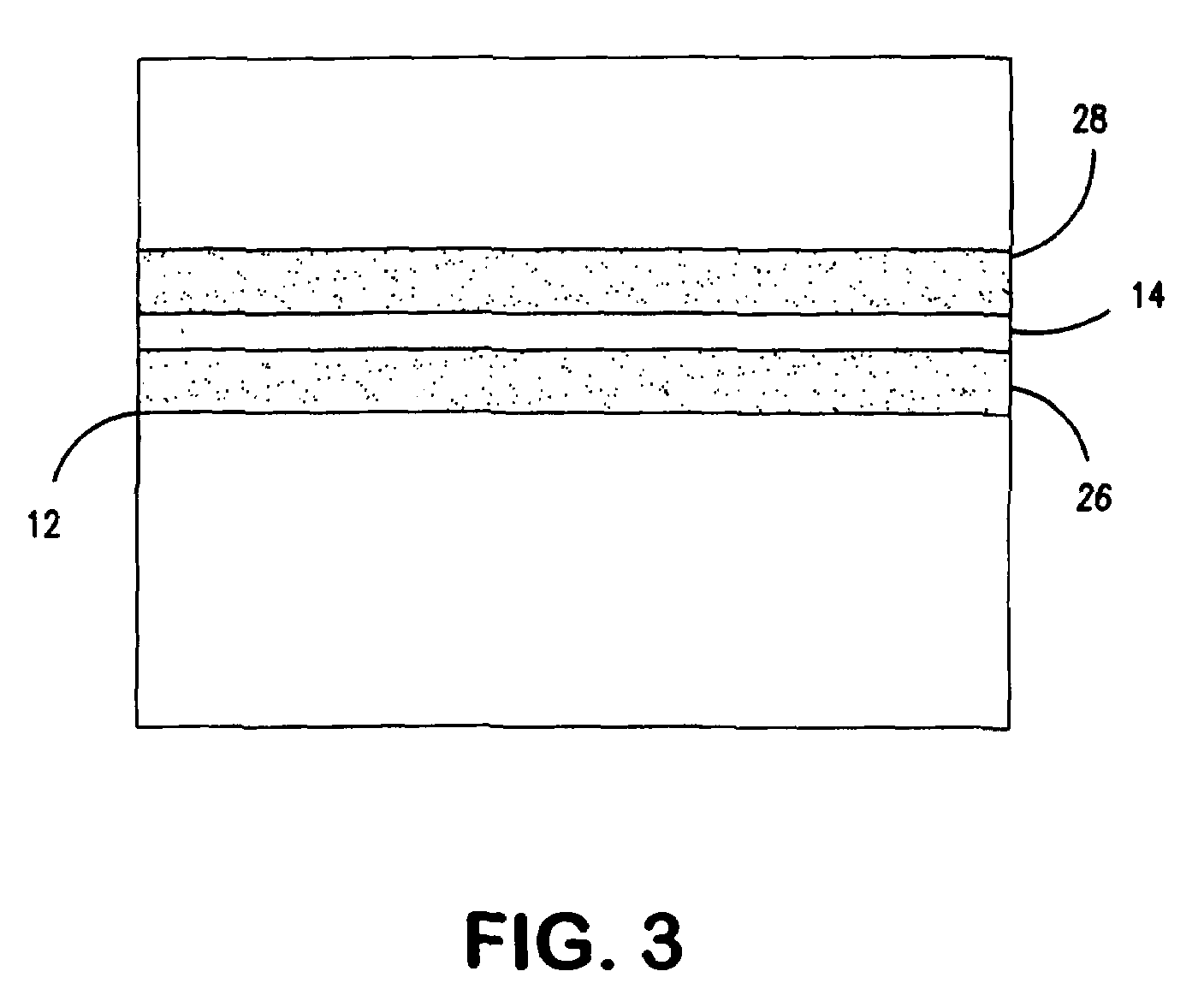Temperature sensing fabric
a temperature sensor and fabric technology, applied in the field of fabric articles, can solve the problems of insufficient signal from the temperature sensor, inability to accurately measure the temperature of the infant, and often delayed discharge from the hospital for days, so as to promote warmth and comfort to the infan
- Summary
- Abstract
- Description
- Claims
- Application Information
AI Technical Summary
Benefits of technology
Problems solved by technology
Method used
Image
Examples
Embodiment Construction
[0020]Referring now to FIG. 1, there is shown a schematic view of a temperature sensing blanket 10 of the present invention. As can be seen the blanket 10 has a plurality of fiber Bragg gratings (FBG) sensors 12 inscribed therein into an optical fiber 14. The FBG sensors 12 are shown to all be connected in series and are therefore all interconnected by the optical fiber 14, however, the blanket 10 may provide isolated groups of series connected FBG sensors so that the blanket 10 can sense the temperature independently at different selected locations of the subject.
[0021]There is a broadband light source 16 that provides the light for the optical fiber 14 so as to reach each of the FBG sensors 12. That light source 16 may be a tungsten lamp or other source of the broad band light.
[0022]As shown, the light from the broadband light source 16 passes through an optical coupler 18 and thus into the FBG sensors 12 within the optical fiber 14 that is integrated into the temperature sensing ...
PUM
| Property | Measurement | Unit |
|---|---|---|
| length | aaaaa | aaaaa |
| wavelength spacing | aaaaa | aaaaa |
| wavelength spacing | aaaaa | aaaaa |
Abstract
Description
Claims
Application Information
 Login to View More
Login to View More - R&D
- Intellectual Property
- Life Sciences
- Materials
- Tech Scout
- Unparalleled Data Quality
- Higher Quality Content
- 60% Fewer Hallucinations
Browse by: Latest US Patents, China's latest patents, Technical Efficacy Thesaurus, Application Domain, Technology Topic, Popular Technical Reports.
© 2025 PatSnap. All rights reserved.Legal|Privacy policy|Modern Slavery Act Transparency Statement|Sitemap|About US| Contact US: help@patsnap.com



